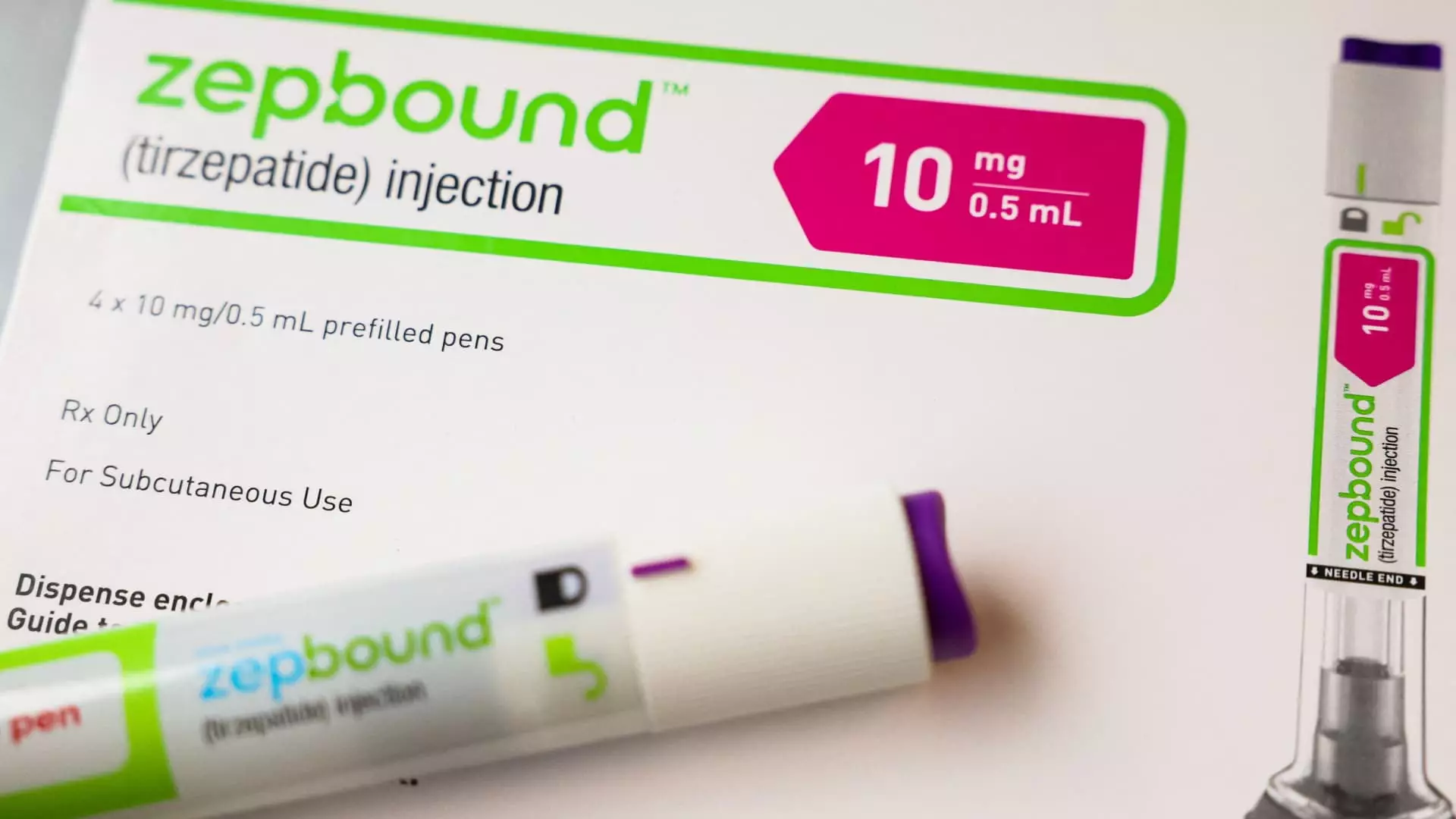In recent developments, Eli Lilly has announced a strategic modification to the distribution and pricing of its weight loss therapy, Zepbound. This decision comes as a response to growing demand and the need to cater to patients lacking insurance coverage, particularly for Medicare recipients. By offering higher doses in single-dose vials at significantly reduced prices, the pharmaceutical giant aims to enhance patient access to their revolutionary medication. This move highlights not only the company’s commitment to public health but also reflects an industry shift towards direct consumer engagement.
Eli Lilly’s introduction of 7.5 milligram and 10 milligram single-dose vials marks a deliberate effort to expand the availability of Zepbound. Priced at $499 for the initial month’s supply, this adjustment allows patients to manage diabetes and obesity with a more accessible financial option. If they opt for refill deliveries within 45 days, they can maintain this initial pricing, which is a significant reduction compared to typical monthly costs that can reach up to $1,000 when utilizing autoinjector pens. Additionally, the company has lower-priced variants on offer; the 2.5 milligram and 5 milligram vials will now cost $349 and $499, respectively. This move not only stabilizes pricing but also responds to the mounting pressure from various stakeholders advocating for affordable medication.
A notable shift introduced with the single-dose vials is the self-administration method. Patients will need to use syringes and needles to draw the medication from vials rather than the more user-friendly autoinjector pens. This change, although it may present a greater challenge for some patients, offers an increased production and distribution capacity, as vials are simpler and more economical to manufacture. Interestingly, Eli Lilly is positioning the vials as a reliable solution amidst ongoing discussions and skepticism surrounding compounding pharmacies that have offered unregulated alternatives during Zepbound’s previous shortages.
Eli Lilly’s decision to create more affordable options directly addresses a critical gap in healthcare—access for Medicare beneficiaries. Patrik Jonsson, the president of Lilly’s diabetes and obesity unit, emphasizes this company’s mission to provide solutions for those impacted by obesity who traditionally have limited access to effective treatment. The inability of Medicare participants to utilize savings card programs and the lack of coverage for obesity treatments have left a significant patient population without viable options. Jonsson advocates for a systemic change, hinting at potential Medicare coverage for obesity medications, a goal that aligns with broader health policy initiatives seen in recent administrations.
The move to offer these cost-effective single-dose vials could set a precedent for other pharmaceutical companies in how they address pricing and accessibility. With obesity escalating into a chronic health crisis, the pressure mounts on pharmaceutical companies to adjust their pricing structures in ways that are more inclusive. While Eli Lilly is not directly competing with compounded alternatives, its commitment to FDA compliance and safety is made clear. By prioritizing regulated treatments over unlicensed alternatives, the company aims to build consumer trust and loyalty—an essential factor in today’s healthcare environment.
Despite these positive strides, Eli Lilly faces hurdles ahead, including skepticism from some healthcare professionals about the effectiveness of weight loss drugs. Secretary Robert F. Kennedy Jr.’s hesitations illustrate the larger skepticism surrounding pharmaceutical interventions in obesity treatment. The risks associated with compounded medications further complicate the market, posing a challenge for Eli Lilly in differentiating its FDA-approved product from less credible alternatives. However, initial data indicates a positive uptake of their vials through the LillyDirect platform—highlighting the patients’ willingness to pay out-of-pocket for reliable treatments.
Eli Lilly’s proactive approach to modify the distribution and pricing of Zepbound not only addresses immediate patient access issues but also opens discussions on a larger scale regarding the pharmaceutical industry’s role in public health. By enhancing affordability, ensuring safety, and advocating for legislative changes, Eli Lilly is setting a roadmap to reaffirm its position as a leader in the weight loss treatment space. As the healthcare landscape continues to evolve, the efficacy of these strategies will be tested against the backdrop of consumer needs, regulatory changes, and market dynamics—leaving a significant mark on the future of obesity management.

Leave a Reply